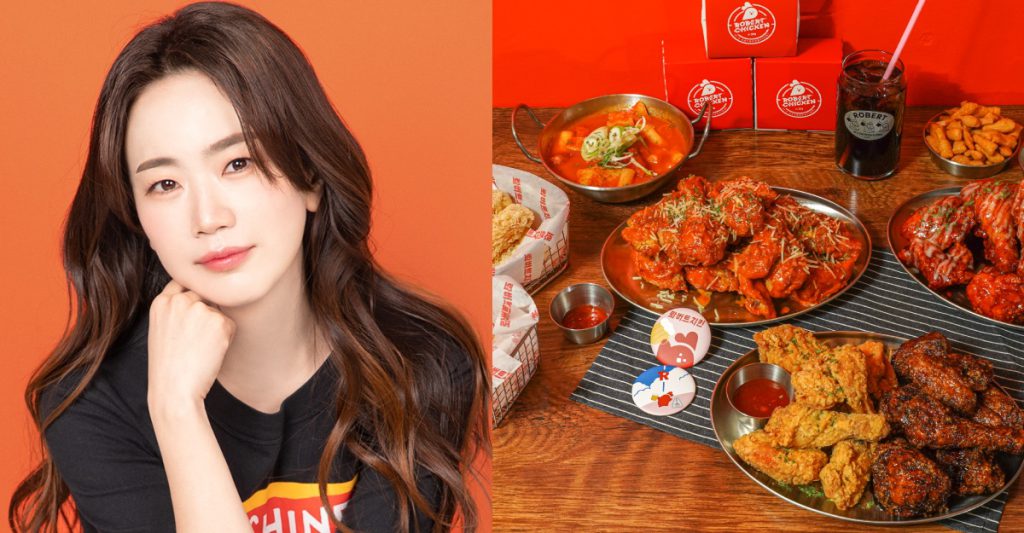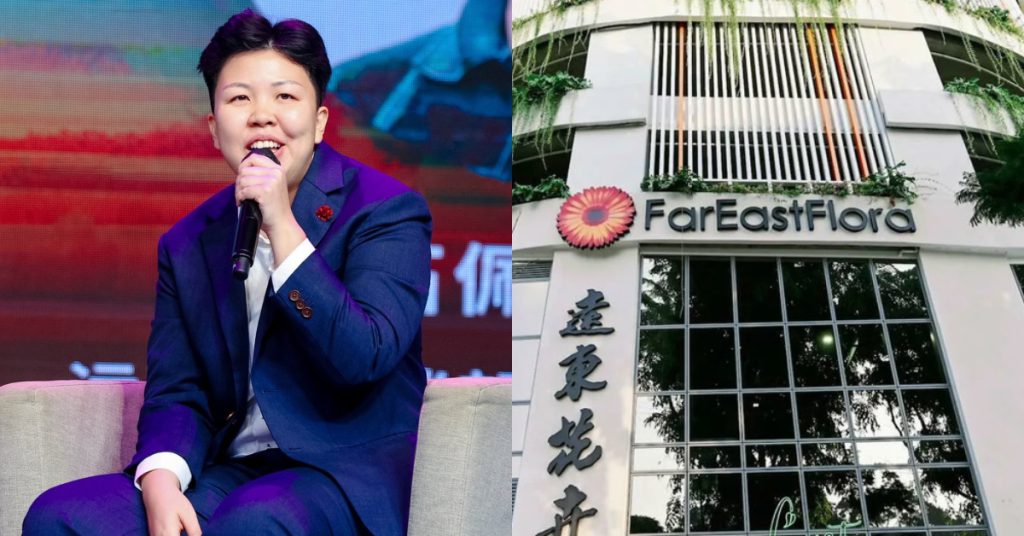The preparation of fried chicken can be a laborious one, especially when it comes to Korean fried chicken, which is typically double-fried.
Even if you manage to nail the process perfectly, achieving that perfect golden crispiness is a challenge — too much oil can make it soggy, while a low oil temperature can prevent it from achieving that satisfying crunch.
This is where tech innovation steps in. Robert Chicken, a Korean fried chicken joint in Singapore, takes the art of creating the perfect Korean fried chicken to a whole new level — with robots.
At the helm of this culinary revolution is Robo Arete, a South Korean robotics startup founded by the visionary 38-year-old Jiyoung Kang.
How do the robots work?
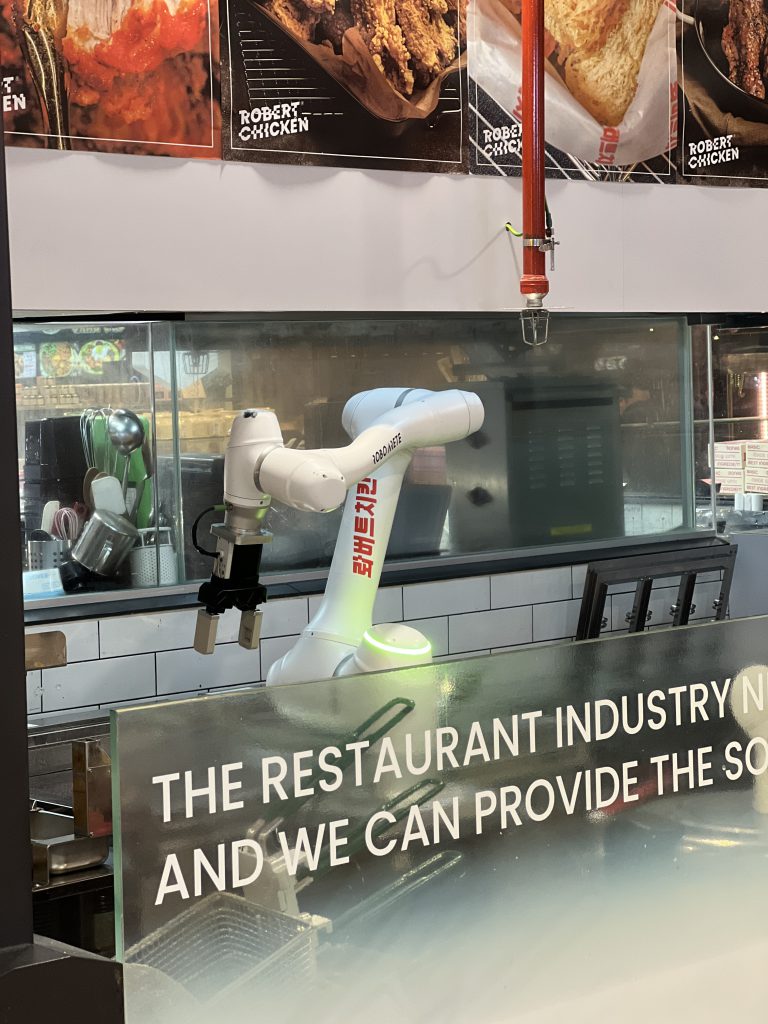
While Robert Chicken utilises robots to solely automate frying processes in Singapore, the restaurant chain employs them to handle various tasks such as breading, battering, marinating, and frying, across its outlets in South Korea.
To begin the process, a staff member has to firstly place the raw chicken into a bucket. With the touch of a few buttons, the bucket automatically rotates, and a robot dispenses breadcrumbs onto the chicken and stirs it to ensure an even coating.
Following this, the robot will transfer the breaded chicken into a frying machine. Another robot will then take over the frying process, tossing the chicken from time to time to ensure that it is evenly cooked.
Once the chicken is perfectly done and crispy, the robot removes it from the oil, giving it a few good shakes to remove as much oil as possible, before a staff member coats the chicken in sauces.
The operation system of these robots, which is certified by the United States’ National Sanitation foundation, is also cloud-based. This allows Robo Arete to monitor the status of system in real-time and respond to any issues directly.
Robert Chicken’s founder was a former venture capitalist
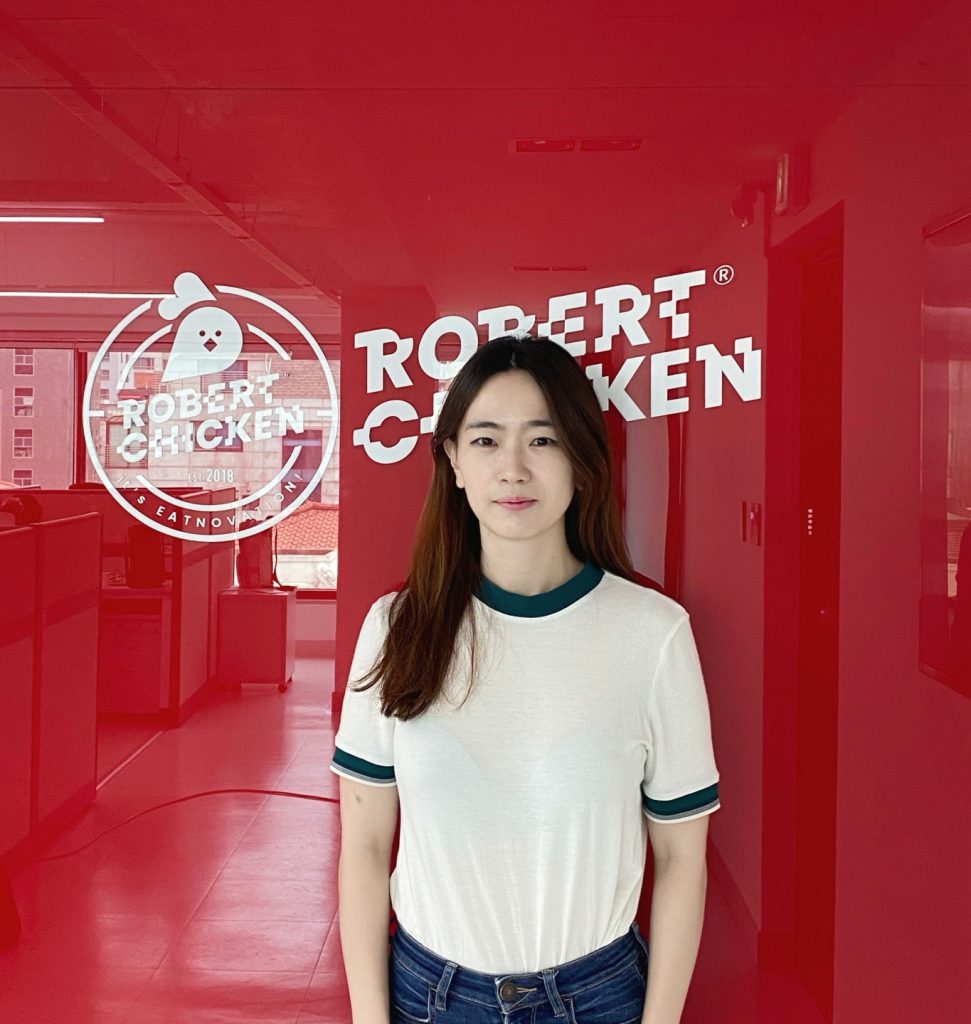
Prior to starting up Robo Arete, Jiyoung was a partner at a South Korean venture capitalist firm, Fast Ventures, where she identifies and analyses market trends in the startup scene on a daily basis.
While analysing these market trends, South Korea’s food delivery industry, in particular, caught Jiyoung’s attention. In 2018, the industry boasted a valuation of around ₩5 trillion (about S$5 billion) — capturing even a modest one per cent market share would yield substantial gains.
However, the food delivery market is notoriously hard to penetrate, given that the industry is saturated with renowned players that have a huge brand presence across the country.
The only way for a company to stand out in this competitive market is by carving out a niche, such as automation. This not only sets the company apart, but also allows for the consistent delivery of high-quality food with unparalleled taste.
Why isn’t the cooking robot market bigger yet? There were no companies attempting [automated cooking] in Korea back in 2018. If that’s the case, I should do it myself, but what kind of food automation would make sense in [South Korea]?
With these thoughts in mind, I naturally started thinking about the Korean food delivery powerhouse: chicken.
– Jiyoung Kang, founder and CEO, Robo Arete
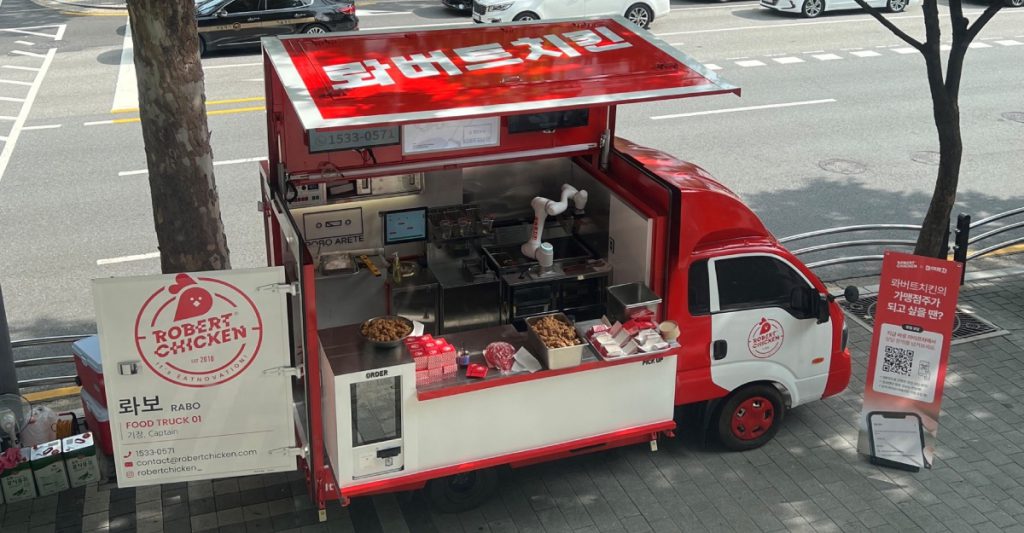
Jiyoung turned her idea into reality with the inception of Robo Arete — the parent company of Robert Chicken — in 2018. Fast forward to today, there are 11 Robert Chicken outlets spread across South Korea, with an additional outlet in Singapore. The Singapore location, which opened in June 2023, marks the brand’s first international expansion.
When asked about her decision to launch in Singapore, Jiyoung explained that she sees similar potential for disruption in the city-state’s F&B scene.
“The use of technology, such as food delivery apps and contactless payments, is already prevalent in Singapore’s F&B sector. There is an opportunity for further technological disruption, including automation in kitchens,” she added.
The company faced a turning point in 2019
Despite Robert Chicken’s successful international and local expansion, Jiyoung admitted that the brand faced multiple setbacks when it initially started out in the South Korean market back in 2018.
While her experience as a VC played a tremendous role in kickstarting the venture, she lacked the experience and specialised knowledge required to run the relevant technologies for Robert Chicken.
I initially had little knowledge of these technologies. Consequently, when I sought out experts, I often faced dismissive attitudes, and I endured numerous financial, physical, and emotional hardships. But when I reflect on it now, I believe that these challenges were what enabled me to ultimately “realise” my vision.
– Jiyoung Kang, founder and CEO, Robo Arete
In 2019, Robo Arete faced a turning point when it managed to secure funding from the South Korean government. With the funds, the company invested into acquiring its first robot and subsequently launched Robert Chicken’s first outlet in Gangnam district of Seoul, South Korea, four months later.
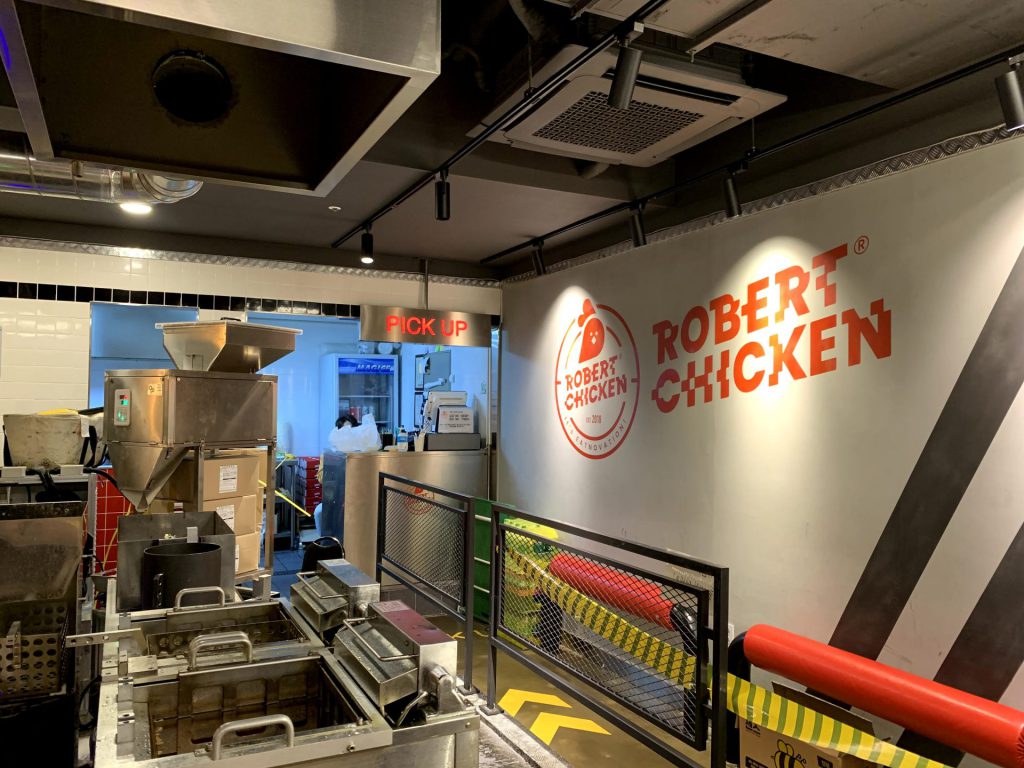
Since the launch of Robert Chicken’s first outlet, the company has consistently channeled its efforts into refining its robot models to boost the efficiency of its stores and lower operational costs. Initially, each of its robots could only operate one fryer at a time as they were attached to the floors of its stores.
For the opening of its second branch, the company attached “robot arms” to the ceiling of its stores instead, allowing each arm to overlook three fryers at once without compromising the quality of its offerings.
“I don’t think there’s any point in doing a food business with robots if it can’t boost productivity,” Jiyoung said in a separate interview with Korea JoongAng Daily. “I don’t want our robots to boast flashy performances. I want them to be fast, precise in their job, with zero fluctuations in food quality.”
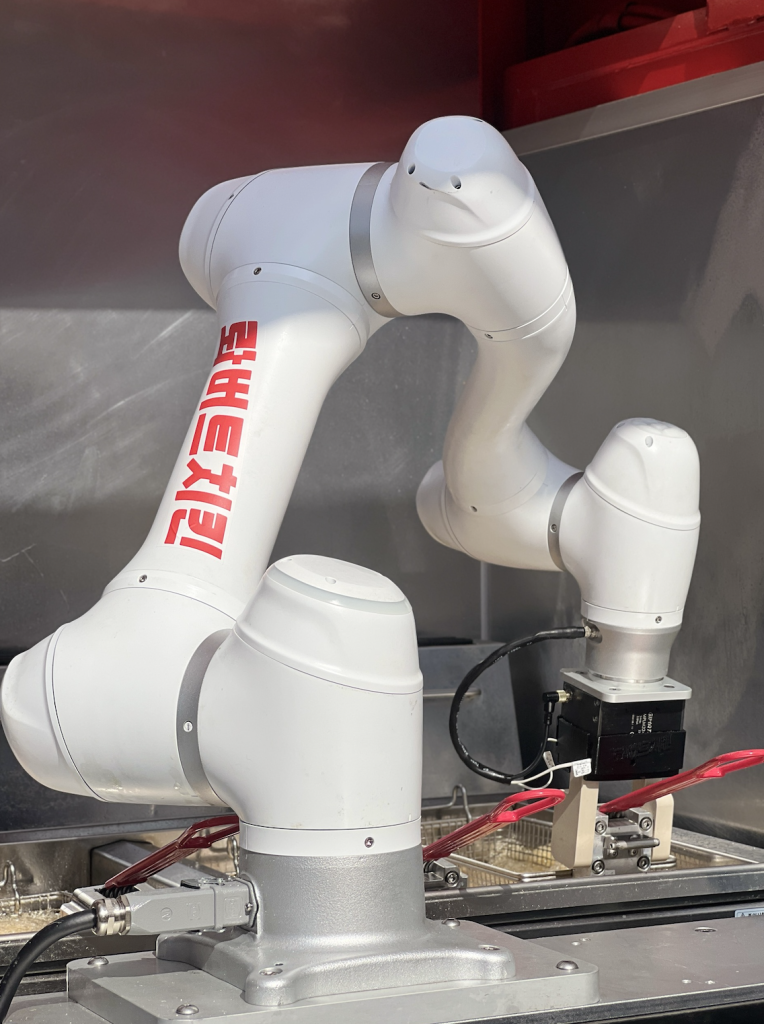
Jiyoung shares that Robo Arete’s robots can now “perfectly carry out the entire frying process of all kinds of items”. These robots can also be connected to delivery apps, allowing them to automatically start preparing orders once it receives data from users.
Beyond boosting the operational efficiency of its robots, Robo Arete has also carried out significant R&D to elevate the flavour profile of its fried chicken. After all, taste is what ultimately draws customers in.
When the startup carried out its first tasting session, Jiyoung was quick to admit that it was nothing short of “a disaster”. The company unveiled eight menu items, but only one of it — the plain fried chicken — garnered favourable comments.
Recognising the need for improvement, Robo Arete continued developing and refining the recipes of their sauces. To further bolster their efforts, the company forged a partnership with a renowned “sauce expert” — who has a track record with one of South Korea’s leading fried chicken franchises — to come up with new dishes and sauces that would perfectly complement these dishes.
Robert Chicken plans to expand to US next
As the company continues to grow, Jiyoung shares that it plans to expand and open more Robert Chicken stores, both across South Korea and internationally, through a master franchise business model.
In the coming months, it is looking to open a Robert Chicken flagship store in New York City, one that would be situated right next to the Empire state building.
Beyond Robo Arete’s expansion plans for its fried chicken brand, the company is adopting a business-to-business (B2B) model to supply its automated frying system to restaurants that may be struggling with labour issues.
To do this, the brand has developed a compact system of these robots, making them smaller and more cost-friendly to allow just about any business to “easily run their own automated kitchen without a large investment and space” to operate these robots.
Our ultimate goal is to make it easy for anyone to open an automated store, and to be able to serve customers personalised menus that can be automatically prepared according to personalised recipes.
– Jiyoung Kang, founder and CEO, Robert Chicken
Embark on your startup journey with MAS-regulated ANEXT Bank, one of Singapore’s first digital banks for SMEs.
Featured Image Credit: Robo Arete


